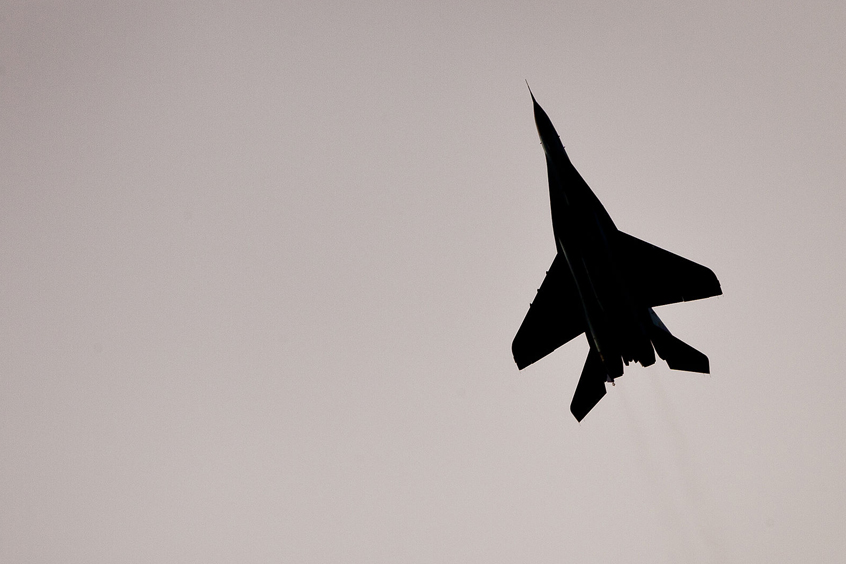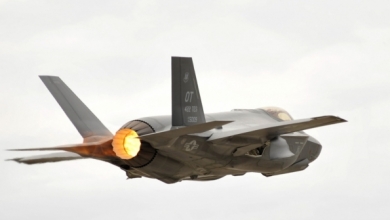بصراحة أنا متفاجئ إلى الآن من التأخر في حسم عدة أمور خاصة بسلاح الجو الإماراتي .. يبدو موضوع الـ F-35 مع سلاح الجو الإماراتي هو سبب مهم في التريث قليلاً ..
حسب ما أظن هناك مماطلة أمريكية و في نفس الوقت ثقة إماراتية بكونهم سيصلون لاتفاق قريباً ..
ومع ذلك حتى عندما تتعاقد الإمارات على F-35 لازلت مؤمن بقوة بأن الـ Rafale ستعود لتحضر و التطوير الجديد F4 واعد جداً و يلفت الانتباه .. !!
الميراج-9 والاف 16 بلوك 60 حصلتا على عقود تطوير مهمة مؤخرا ..
Consult all press information on Dassault Aviation operations. © Dassault Aviation - A. Paringaux

www.dassault-aviation.com
هذا من شأنه اعطاء مزيد من (النفس الطويل) للنظر في الخيارات المختلفة وتطويراتها + التطلع لبرامج الجيل الخامس ( الاف 35 وبرنامج الجيل الخامس الخفيف بالتعاون مع شركة ميج )
مؤشرين ايجابيين :
مؤخرا ,, برز خبر حول تخفيض سعر الاف 35 A ليصل لـ 80 مليون دولار بحلول 2020 ( سعر جذاب جدا )
ايضا احد اهم التطورات في هذا الجانب , خبر بعنوان ( لإتمام صفقة الاف 35 , يتوجب على الامارات العربية المتحدة ان توافق على حماية البيانات الحساسة )
To Seal F-35 Deal, UAE Must Agree To Protect Sensitive Information
Nov 14, 2017
Lara Seligman | Aerospace Daily & Defense Report
Photo by Airman Pedro Mota
DUBAI, UAE – Approval of the UAE’s request to buy the
F-35 hinges on the Gulf nation agreeing to take steps to protect the network-centric fighter’s sensitive technology and vast data bank of critical information, according to the Pentagon’s top weapons buyer.
The F-35 is more supercomputer than bomb truck – it is a flying data hub, designed to vacuum in critical threat information and transmit that data seamlessly throughout the allied force. But that capability presents a new set of challenges: protecting sensitive technology and sovereign information shared between international operators over the aircraft’s vast network.
This issue already has proven tricky for international F-35 partners and allies currently planning to operate the fighter. Now, news that the U.S. is considering selling the F-35 to Gulf nations could alarm those existing partners – particularly Israel. Tel Aviv is currently the exclusive operator of the Joint Strike Fighter in the Middle East region.
As the UAE seeks a classified briefing on the F-35, the U.S. is working closely with the Emirates to establish a structure to protect this kind of information, Ellen Lord, U.S. undersecretary of defense for acquisition, technology and logistics, told Aviation Week in an interview at the Dubai Airshow.
The U.S. is “continuing to partner with the UAE on being able to release more hardware and software to them, and to some extent that’s predicated on a system to control critical information that somewhat aligns with the U.S.,” Lord said. “It’s not a question of right or wrong, it’s being able to communicate effectively and make sure we understand each other’s positions.”
The U.S. has procedures in place to ensure high-level government officials review critical information before it gets distributed throughout the force, Lord explains. Before the UAE can buy the F-35, the Gulf nation must agree to a similar standard, she said.
“We want that same thoughtful process to be applied in a way that’s somewhat consistent with the U.S. so we can share new technology,” she said.
For now, the Pentagon is focused on continuing to upgrade the UAE’s fleet of
Lockheed Martin’s
F-16s, Lord said. The Gulf nation’s Block 60 F-16 Desert Falcon fighters have been described as some of the most advanced F-16s operating anywhere in the world, and were the first to be equipped with an active electronically-scanned array radar and conformal fuel tanks.
As the UAE continues to upgrade the F-16, discussions are ongoing about implementing processes to ensure technology security on those aircraft. This conversation could lead to the UAE potentially securing other capabilities in future, such as the F-35, she said.
“I think we are making a lot of progress on F-16s,” Lord said. “I think there’s more we can do there, and again as we put more frameworks in place to deal with technically sensitive information, that will enable us to do more in terms of sharing.”
Lockheed and the UAE Armed Forces announced a $1.65 billion support upgrade contract for the Gulf nation’s F-16 here Nov. 11. Maj. Gen, Adbullah Al-Hashimi, executive director of the military committee at the Dubai Airshow, said the upgrade would deal with obsolescence issues in the Block 60 aircraft which were ordered by the UAE in 2000. Lockheed officials declined to provide additional details.
Lord stressed the importance of interoperability between allies in an ever more connected battlefield.
“In the multi-domain battle, interoperability is very important for the U.S. with our partners and allies,” Lord said. “We want to make sure that we go to war if we need to go to war, with our partners and allies with interoperable systems, so in order to do that we would like to sell them everything that we possibly can.”
لغاية الآن لم نسمع عن جديد حول المقاتلة الاماراتية القادمة .... قد يستجد جديد في معرض دبي للطيران ( 17-21 نوفمبر 2019 )




 وتاس فى السكة
وتاس فى السكة

